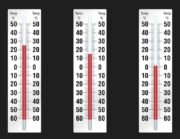As someone with extensive experience in the world of crossword puzzles, I understand the frustration that comes when you feel stuck or unable to make progress. However, I also know the immense satisfaction that comes from solving a challenging puzzle and the sense of accomplishment it brings. This article will help you learn how to get better at crossword puzzles by providing practical tips and strategies that have worked for me and countless others.
What is the secret to becoming a proficient crossword solver? The answer lies in understanding the fundamentals of crossword puzzles, developing effective techniques for decoding clues, and consistently expanding your vocabulary. By following the advice in this article, you’ll be well on your way to crossword puzzle success. So, let’s dive into these valuable insights together and unlock your full potential as a crossword enthusiast!
5 Techniques for Decoding Tricky Clues
Crossword puzzles often present tricky clues that can stump even seasoned solvers. These challenging clues require creative thinking and a keen understanding of the different types of wordplay at play. In this section, we’ll explore five techniques to help you decode tricky clues and make progress in your crossword-solving journey.
One helpful technique for decoding tricky clues is to look for anagrams. Anagrams are words formed by rearranging the letters of another word. For example, the clue “Nag a ram” is an anagram of the word “anagram.” Keep an eye out for indicators in the clue that suggest an anagram, such as “rearranged” or “mixed up.”
Another useful technique is to recognize hidden words. These clues contain the answer hidden within the clue itself. For instance, the clue “Part of the agenda was to elect a representative” contains the hidden word “eagle” (part of the agenda was to elect). Look out for phrases like “part
5 Techniques for Decoding Tricky Clues
Crossword puzzles often present tricky clues that can stump even seasoned solvers. These challenging clues require creative thinking and a keen understanding of the different types of wordplay at play. In this section, we’ll explore five techniques to help you decode tricky clues and make progress in your crossword-solving journey.

How to Get Better at Crossword Puzzles: Tips and Strategies
One helpful technique for decoding tricky clues is to look for anagrams. Anagrams are words formed by rearranging the letters of another word. For example, the clue “Nag a ram” is an anagram of the word “anagram.” Keep an eye out for indicators in the clue that suggest an anagram, such as “rearranged” or “mixed up.”
Another useful technique is to recognize hidden words. These clues contain the answer hidden within the clue itself. For instance, the clue “Part of the agenda was to elect a representative” contains the hidden word “eagle” (part of the agenda was to elect). Look out for phrases like “part of” or “inside” that might indicate a hidden word.
A third technique involves understanding homophones, which are words that sound the same but have different meanings and spellings. For example, the clue “Sounds like a place to store wine” could lead to the answer “cellar” (which sounds like “seller”). Watch for suggestive phrases like “sounds like” or “heard” that may indicate a homophone.
The fourth technique is to identify cryptic definitions. These clues offer a more obscure or whimsical definition of the answer. For example, the clue “A heavenly body with a tail?” could refer to a “comet.” To solve cryptic definition clues, try to think outside the box and consider alternative meanings of the words in the clue.
Finally, the fifth technique is to recognize double definitions. These clues provide two different definitions for the same answer. For instance, the clue “Bat or stick” could have the answer “club,” since both “bat” and “stick” can be synonyms for “club.” Look for clues with multiple meanings and try to find a common thread.
By familiarizing yourself with these five techniques, you’ll be better prepared to tackle tricky clues and enhance your crossword-solving skills.
Building Your Vocabulary for Crossword Puzzle Success
A strong vocabulary is essential for crossword puzzle success, as it enables you to recognize and decode a wide range of clues. The more words you know, the better equipped you’ll be to tackle challenging puzzles and make progress in your crossword-solving journey. Let’s explore some strategies to help you build your vocabulary and enhance your crossword puzzle skills.
- Read widely: Diversify your reading materials, including books, newspapers, magazines, and online articles. This exposure to new words and phrases will naturally expand your vocabulary over time.
- Use flashcards: Create flashcards with unfamiliar words and their definitions to help reinforce your memory. Review these cards regularly to commit new words to your long-term memory.
- Learn word roots, prefixes, and suffixes: Understanding the building blocks of words can help you decipher unfamiliar terms by breaking them down into their components. For example, knowing that “tele” means “distant” can help you understand words like “telescope” or “telepathy.”
- Play word games: Engage in word games like Scrabble, Boggle, or online vocabulary quizzes to challenge yourself and learn new words in a fun and interactive way.
- Keep a vocabulary journal: Write down unfamiliar words you encounter in your daily life, along with their definitions and a sentence using the word in context. Review this journal periodically to reinforce your learning.
By incorporating these strategies into your daily routine, you’ll steadily build your vocabulary and improve your crossword puzzle-solving abilities. The key is consistency and persistence in your efforts to expand your knowledge of words and their meanings.
Daily Practice to Enhance Your Crossword Skills
Just like any other skill, becoming proficient at crossword puzzles requires consistent practice and dedication. By incorporating daily practice into your routine, you’ll not only build a strong foundation but also improve your problem-solving abilities and speed. In this subheading, we’ll explore the importance of daily practice and offer some suggestions on how to make it an enjoyable and productive part of your day.
One effective way to ensure consistent practice is to set aside a specific time each day for crossword puzzles. Whether it’s during your morning coffee break, lunch hour, or before bedtime, dedicating a regular time slot to solving puzzles will help you develop a habit that supports your progress. Additionally, working on puzzles daily will expose you to new words and clue styles, further expanding your vocabulary and crossword-solving strategies.
To maximize the benefits of daily practice, consider varying the difficulty levels and sources of the puzzles you solve. For example, you might start with easier puzzles from newspapers or online platforms and gradually progress to more challenging ones from specialized crossword books or websites. By diversifying your puzzle sources, you’ll encounter a wide range of clue styles and vocabulary, which will ultimately enhance your overall skills.
Incorporating daily practice into your routine will undoubtedly accelerate your growth as a crossword solver. With persistence and dedication, you’ll soon find yourself tackling increasingly challenging puzzles with confidence and ease.
Online Tools and Resources for Crossword Enthusiasts
In today’s digital age, crossword enthusiasts have access to a wealth of online tools and resources that can help improve their skills and keep them engaged with their favorite pastime. From websites and apps to forums and blogs, these resources provide invaluable support to both beginners and seasoned solvers alike. Let’s take a look at some of the top online tools and resources that can enhance your crossword puzzle experience.
- Online crossword puzzle databases: Websites like The New York Times Crossword, The Guardian Crossword, and The Los Angeles Times Crossword offer a vast library of crossword puzzles catering to different skill levels.
- Crossword puzzle apps: Apps such as Crosswords With Friends, Shortyz Crosswords, and Puzzazz provide a convenient way to solve puzzles on the go, right from your smartphone or tablet.
- Word games and vocabulary builders: Games like Scrabble, Words With Friends, and Vocabulary.com help you expand your vocabulary and sharpen your word skills in a fun and interactive way.
- Crossword puzzle forums and communities: Online communities like the /r/crossword subreddit and the Rex Parker Does the NYT Crossword Puzzle blog offer a space for crossword enthusiasts to discuss puzzles, share tips, and connect with fellow solvers.
- Crossword puzzle-solving tools: Websites like One Across and Wordplays offer tools to help you solve tricky clues, find anagrams, and discover synonyms, making your crossword-solving journey more enjoyable.
By making use of these online tools and resources, you’ll be better equipped to take your crossword puzzle skills to new heights. Explore and experiment with various platforms to find the ones that suit your needs and preferences, and enjoy the countless benefits they bring to your crossword-solving experience.
Exploring Different Types of Crossword Puzzles for a Well-Rounded Experience
To become a well-rounded crossword enthusiast and continually challenge yourself, it’s essential to explore different types of crossword puzzles. By familiarizing yourself with various puzzle formats, you’ll expand your skills, learn new strategies, and keep the experience fresh and engaging. In this section, we’ll introduce you to some popular types of crossword puzzles that you can explore to enrich your solving experience.
One of the most famous crossword puzzle types is the American-style crossword, which typically features a symmetrical grid with black and white squares. These puzzles are known for their straightforward clues and emphasis on general knowledge. Another popular type is the British-style crossword, also known as the cryptic crossword. Cryptic crosswords are characterized by their challenging and often witty clues, requiring solvers to decipher wordplay and puns to find the answers.
In addition to these two well-known styles, there are several other types of crossword puzzles worth exploring. Some examples include the acrostic puzzle, where the first letters of each answer spell out a hidden message or quote, and the fill-in crossword, which presents a grid without any clues and requires solvers to fit words into the grid based on their length and intersecting letters.
By venturing beyond your comfort zone and trying different types of crossword puzzles, you’ll gain a broader perspective on the world of crosswords and continue to hone your skills. The variety will not only make your crossword-solving experience more enjoyable but also provide you with new challenges and opportunities for growth.
Conclusion: To Wrap Up
Becoming proficient at crossword puzzles requires a combination of expanding your vocabulary, understanding the various types of clues, exploring different puzzle formats, and incorporating daily practice into your routine. By following the tips and strategies discussed in this article, you’ll soon find yourself tackling increasingly challenging puzzles with confidence and ease.
Remember that the journey to crossword puzzle mastery is an ongoing process, and with persistence and dedication, you’ll continue to grow and enjoy the countless benefits of this engaging pastime. So, grab your favorite pen or pencil, dive into the world of crosswords, and let the fun begin!
Frequently Asked Questions
[faq-schema id=”1117″]
















